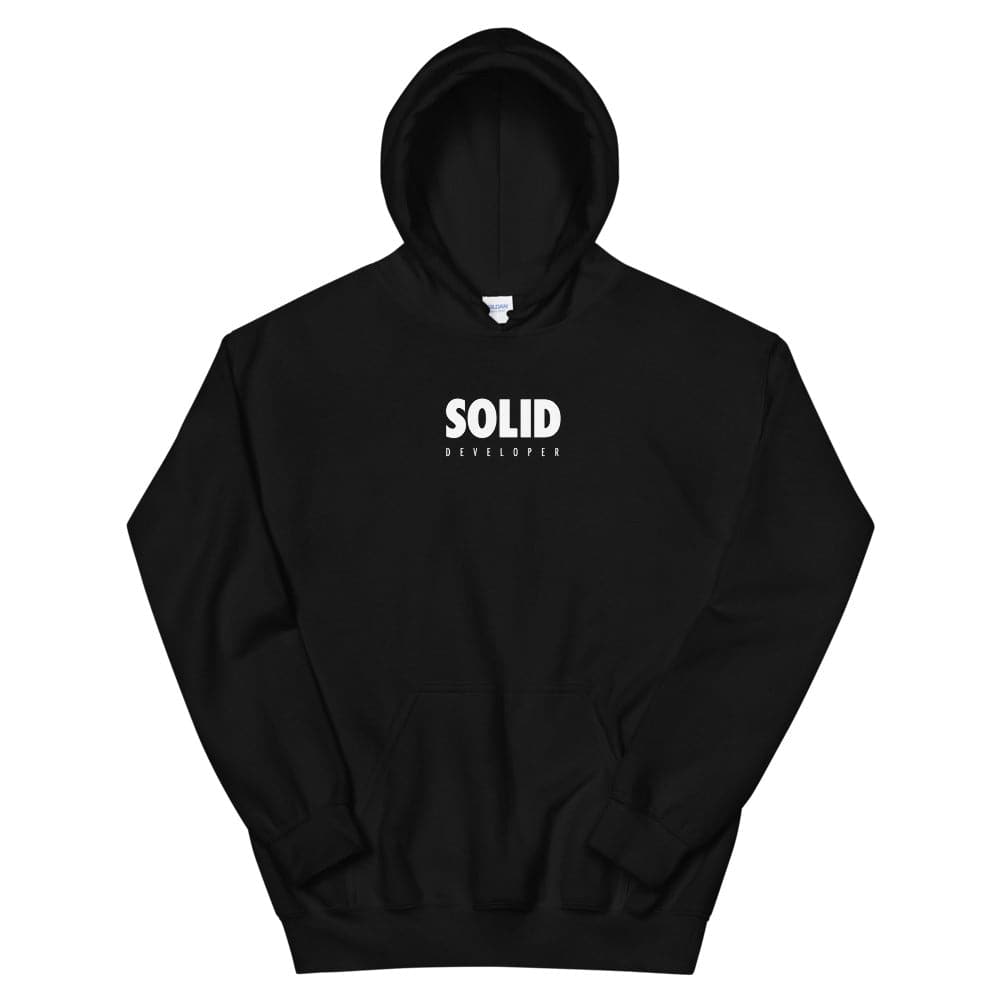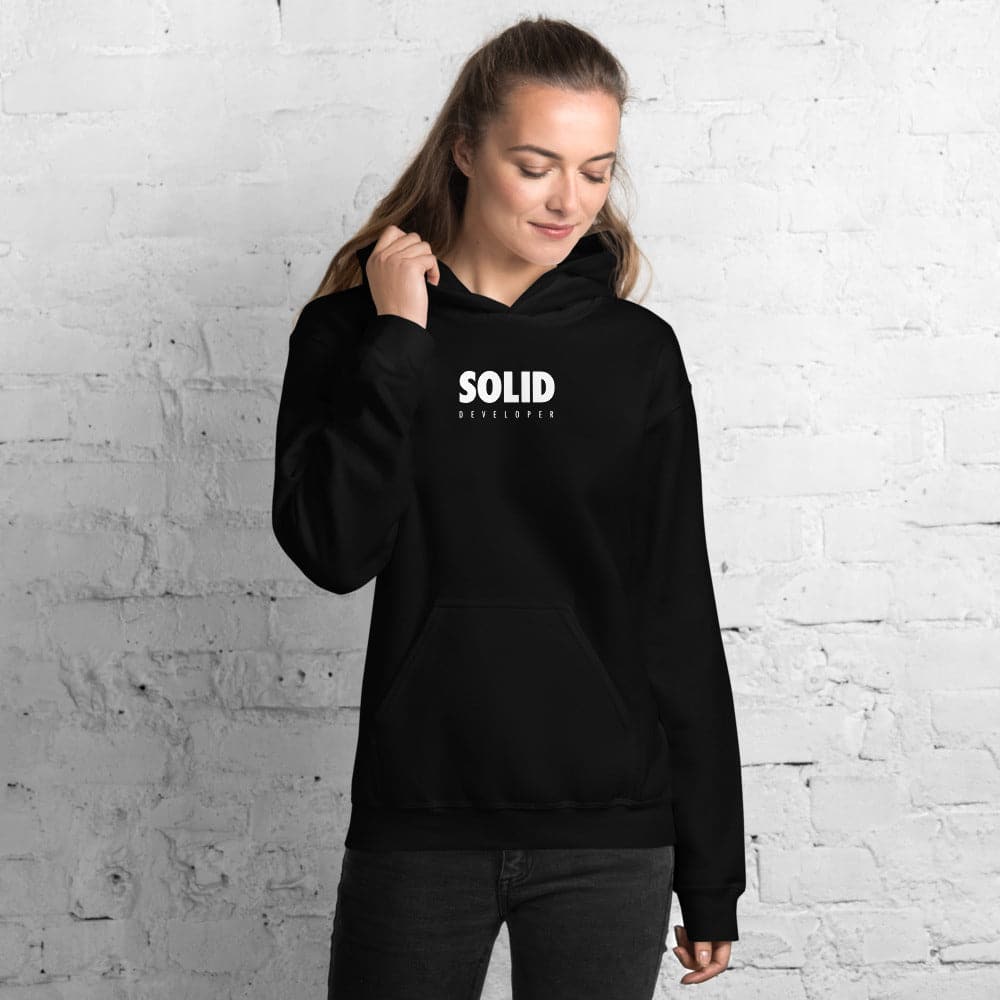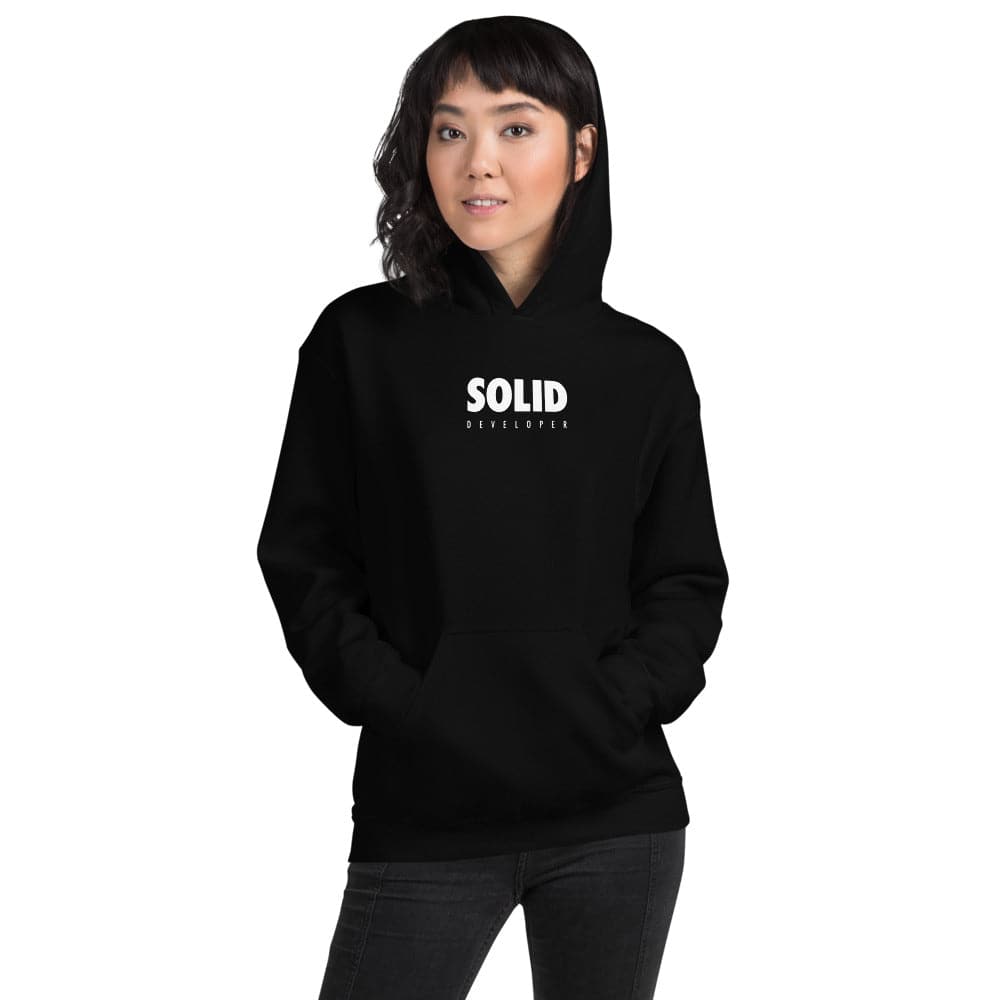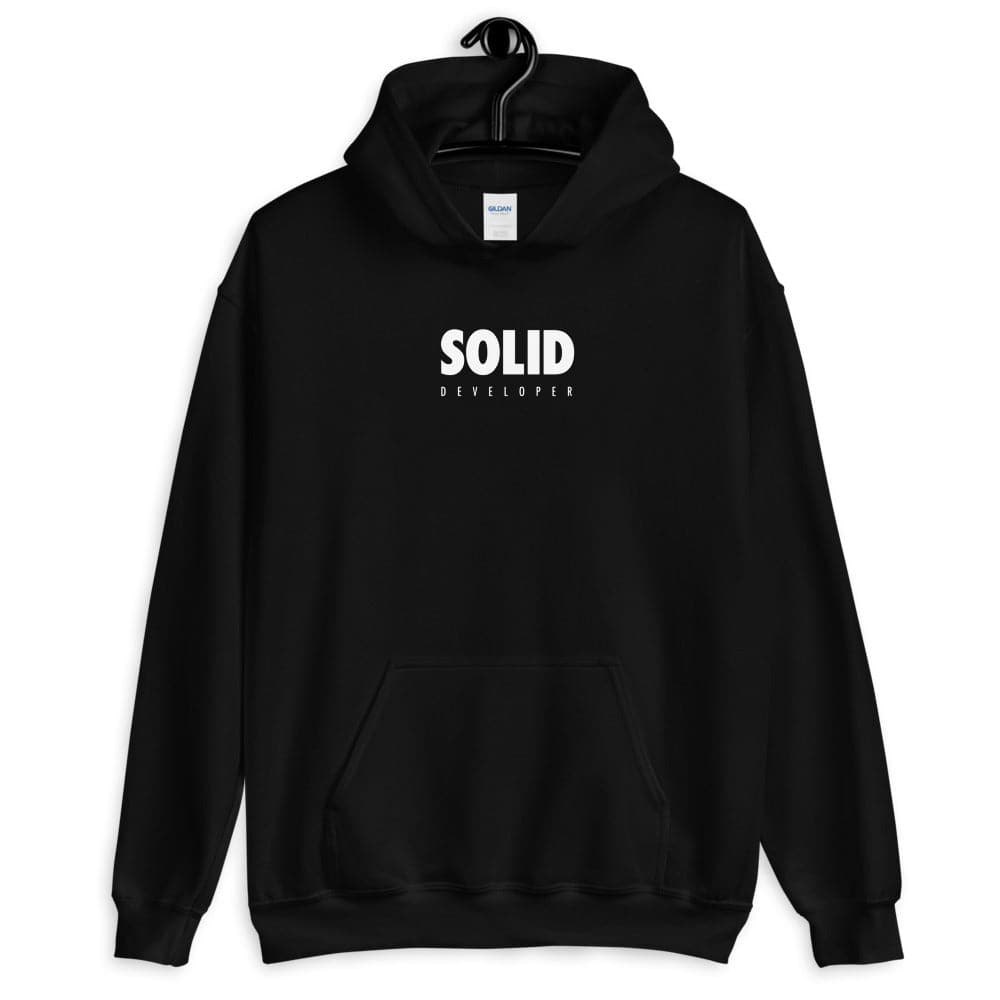DevHero
SOLID Developer Unisex Hoodie
SOLID Developer Unisex Hoodie
Couldn't load pickup availability
We clean up after ourselves.
Ecommerce deliveries have a carbon footprint. That's why we support verified projects that remove carbon from the air.



Every delivery’s carbon footprint is calculated based on weight, shipping method, and distance traveled. We neutralize these emissions by purchasing verified carbon removal credits from groundbreaking projects.



With your purchase, you’ll join a community of proactive merchants and customers dedicated to a sustainable future. Together, we've removed emissions for over 75 million deliveries and removed over 53 thousand tonnes of carbon.

We work with a network of pioneering carbon removal companies that have been vetted by the commerce platform Shopify.

The SOLID concepts are:
- The Single-responsibility principle: "There should never be more than one reason for a class to change."[5] In other words, every class should have only one responsibility.
- The Open–closed principle: "Software entities ... should be open for extension, but closed for modification."
- The Liskov substitution principle: "Functions that use pointers or references to base classes must be able to use objects of derived classes without knowing it."
- The Interface segregation principle: "Many client-specific interfaces are better than one general-purpose interface."
- The Dependency inversion principle: "Depend upon abstractions, [not] concretions."
- The SOLID acronym was introduced later, around 2004, by Michael Feathers.
Although the SOLID principles apply to any object-oriented design, they can also form a core philosophy for methodologies such as agile development or adaptive software development.
Technical details:
• 50% pre-shrunk cotton, 50% polyester
• Fabric weight: 8.0 oz/yd² (271.25 g/m²)
• Air-jet spun yarn with a soft feel and reduced pilling
• Double-lined hood with matching drawcord
• Quarter-turned body to avoid crease down the middle
• 1 × 1 athletic rib-knit cuffs and waistband with spandex
• Front pouch pocket
• Double-needle stitched collar, shoulders, armholes, cuffs, and hem
• Blank product sourced from Honduras, Mexico, or Nicaragua
Size guide
| S | M | L | XL | 2XL | 3XL | |
| Length (inches) | 27 | 28 | 29 | 30 | 31 | 32 |
| Width (inches) | 20 | 22 | 24 | 26 | 28 | 30 |
| S | M | L | XL | 2XL | 3XL | |
| Length (cm) | 69 | 71 | 74 | 76 | 79 | 81 |
| Width (cm) | 51 | 56 | 61 | 66 | 71 | 76 |
Share








We clean up after ourselves.
Ecommerce deliveries have a carbon footprint. That's why we support verified projects that remove carbon from the air.



Every delivery’s carbon footprint is calculated based on weight, shipping method, and distance traveled. We neutralize these emissions by purchasing verified carbon removal credits from groundbreaking projects.



With your purchase, you’ll join a community of proactive merchants and customers dedicated to a sustainable future. Together, we've removed emissions for over 75 million deliveries and removed over 53 thousand tonnes of carbon.

We work with a network of pioneering carbon removal companies that have been vetted by the commerce platform Shopify.









